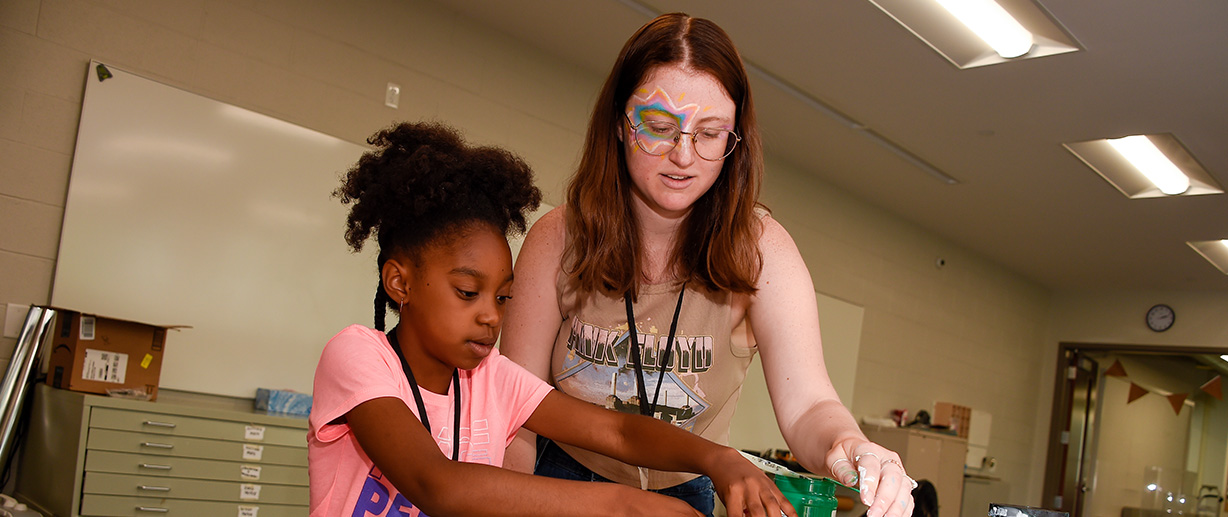By Brandi Wylie ’24, student intern
Blake Batten ’23 is using her Wofford coursework to launch herself into a summer of research, presentations and giving back to the Spartanburg community.
The sociology and anthropology and art history major from Anderson, South Carolina used her sustainability seminar course with Dr. Alysa Handelsman, assistant professor of sociology and anthropology, and museums study course with Dr. Youmi Efurd, museum curator, to come up with a project that makes a difference in the Spartanburg community through art.
Batten and Efurd attended the Association of Academic Museums and Galleries annual conference to present the research and potential impact of their summer art camps for fifth graders at local Boys and Girls Clubs.
The theme of this year’s conference was “Sustainability Now!” Batten was the only undergraduate student selected to present at the conference, which took place June 15-17 at Utah State University.
“I honestly just told stories because I didn’t have a lot of (concrete) data to share yet,” Batten says. “I talked about how we started building the program and how it came to be. I also talked about how my research questions have evolved…I started too broad, and I will admit that.”
Through the camp, Batten has realized the importance of ideas such as social pressure and self-perspective on a child’s interaction with art.
The camps started with fifth graders at elementary schools in Spartanburg County School Districts 2 and 7. Batten chose fifth grade as her target audience because of how transitional of a year it can be for those students as they soon advance to their perspective middle schools.
The project’s purpose is to increase literacy among the students while also introducing them to creative outlets and various art forms. She explains that much of the camp’s material is creative artwork accompanied by a writing component, exercising and developing both artistic and literary stills.
“The sustainability aspect of this project is that I was able to expand it from Mary H. Wright Elementary School to Cleveland (Academy of Leadership) and the homework club at (Spartanburg Housing),” Batten says. “We were able to also create this camp, which will be taken over next by someone in the new sustainability cohort.”
“Almost all of this was preliminary and it’s just building one on top of each other,” Batten says. “I do most of the research because it’s my own responsibility, and (Efurd) advises. She supports me all the way through.”
The presentation in Utah was a proposal for how the club can become a sustainable part of the Spartanburg community. The two have been working on this for over a year, so they are using the conference as a way of presenting the working proposal.
“I am a one-person department with students coming in and out, and the ultimate goal is that (a Wofford art summer camp) can become sustainable and can expand beyond the Boys and Girls Clubs,” Efurd says.
Efurd and Batten recognize this as one step in a larger project at work, and Handelsman is in full agreement.
Handelsman’s sustainability seminar course requires a project that itself is sustainable in how it can continue long after it is first initiated, which is something that Batten’s project achieves on many levels.
“I see the art club as something that will continue growing,” Handelsman says. “I see it as a really great model for the other programming in our course to become summer camps as well.”
Batten’s project is the first one that had a summer camp component, and it led to many schools reaching out to Handelsman regarding a potential summer camp for many of the other students’ projects as well.
“When I started this class, I had these dream students,” Handelsman says. “And (Batten) is one of those dream students.”
